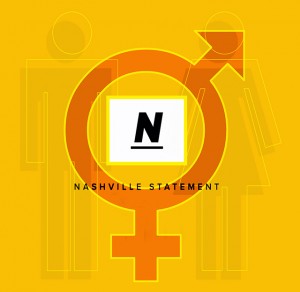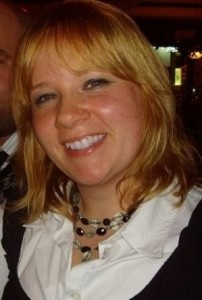 Intersex & Faith, Inc. recently completed a survey of more than 100 of the signatories of the Nashville Statement, asking for clarification of Article 6, especially the call for intersex people to, “embrace their biological sex insofar as it may be known.”
Intersex & Faith, Inc. recently completed a survey of more than 100 of the signatories of the Nashville Statement, asking for clarification of Article 6, especially the call for intersex people to, “embrace their biological sex insofar as it may be known.”
Historically, doctors have castrated us, surgically assigned us a sex, given us hormones, told us lies, kept secrets from us, and caused us to live in shame—all in the name of their binary vision of sex. So it was easy for some of us to conclude that Article 6 called on us to embrace the evil being done to us.
None of the signatories who responded agreed with that reading. None appeared to be in favor of childhood genital surgeries. In fact, Dr. Denny Burk, one of the architects of the Nashville Statement, opposes them.
Regarding the treatment of intersex cases, we received a variety of replies. Most either said they didn’t have enough experience with intersex, or that individual cases merited deeper consideration than a set of rules would allow.
The largest group, however, referred us to the writings of Dr. Denny Burk, who appears to reduce the diversity of biological sex to the presence or absence of a Y chromosome.
We included a short questionnaire with our survey. It’s available online here. The first question deals with Complete Androgen Insensitivity Syndrome:
“Your sixteen-year-old daughter Connie’s a godly young woman. She’s healthy but never got her period. A specialist says that she has Complete Androgen Insensitivity Syndrome. Although externally she’s a typical female, she has XY chromosomes, and testes in her abdomen rather than ovaries and uterus.”
Dr. Denny Burk, on his website (about halfway down the page in the comment section) addresses AIS:
“With AIS, there is an XY chromosomal make-up and the internal organs are still male. It is the external reproductive features that are malformed. This is a tragic, difficult condition, and those who experience it are in need of our compassion, love, and understanding. But that doesn’t preclude us from helping them see that they are essentially male in spite of ambiguities in external features.”
In his book, What is the Meaning of Sex?, on page 81, Dr. Burk appears to suggest that anyone born with a vagina but with XY chromosomes should be considered male.
“Try to determine as soon as possible the chromosomal makeup of the child. If there is a Y chromosome present, that would strongly militate against raising the child as a female, regardless of the apperance of the genitals or other secondary sex characteristics.”
This is certainly different than the commonly-accepted Biblical view or the historical view of the Church regarding how to determine a person’s sex. The Bible would consider a woman with CAIS to be female.
Barren women are usually infertile for biological reasons. Often, that is an intersex condition such as Complete Androgen Insensitivity Syndrome. It is only recently that the technology became available to determine karyotype (e.g. XX or XY).
A woman with Swyer Syndrome would have a functional vagina and uterus, but no gonads (or penis). Using IVF and a donor egg, some have carried a baby to term. Yet it appears that Dr. Burk–and some of the signatories of the Nashville Statement–would still consider her male because she has a Y chromosome. Again, the Bible would consider her female–a barren woman.
With the continuing debate over the ethics of transgender treatment, I’m astounded that any conservative Christians would take the position that someone born with a vagina and no penis is male, regardless of their genetics.
If you’re a Christian, and your child is intersex, please contact Intersex & Faith.
liannesimon at yahoo dot com

